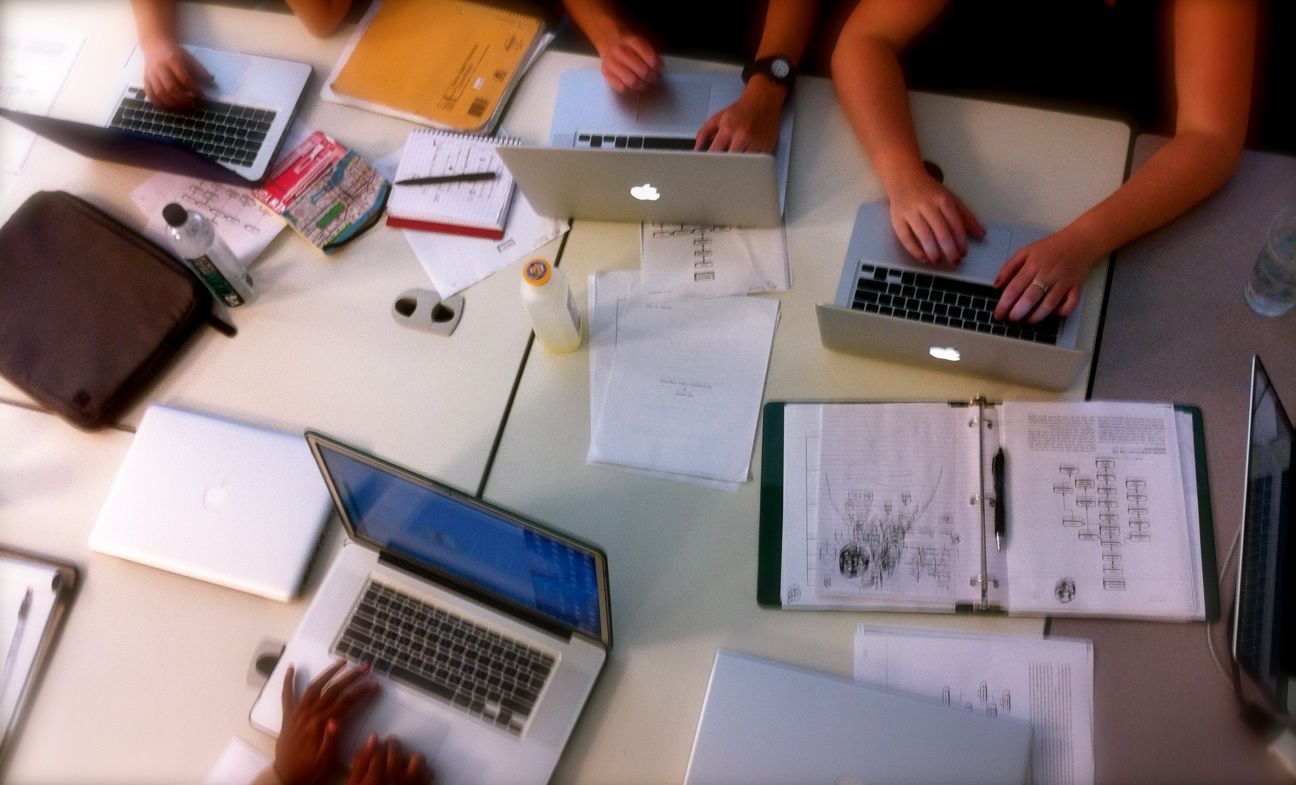
TEN-HUT!
[flickr id=”7888653810″ thumbnail=”medium” overlay=”true” size=”original” group=”” align=”none”]
I’d imagine most people would associate the term ‘boot camp’ with physical fitness training programs or military recruitment. It’s generally not affiliated with study—at least not to my knowledge—so when an open-armed faculty welcome you to ‘day one of boot camp’ and share a knowing chuckle afterwards, it’s somewhat unsettling.
Thirty minutes prior, we’d started to trickle through the doors of Columbia’s all-but-deserted 1104 South Wabash campus building. It was the morning of Monday, August 6th, and one by one, we made our way to the third floor, sharing rather reserved pleasantries as we arrived outside room 321. I always find those first steps fascinating to witness; everybody a little wary, tentatively testing the waters.
First-day jitters soon subsided as we were thrown into the deep end. In week one, our first practical exercise was to create a one-minute short-film. The film was required to have a protagonist with a clear objective and three obstacles standing in the way of achieving that goal. Executed properly, the film would demonstrate an understanding of the basic structural elements of storytelling. We each had to write and direct one of these films, so between our producing class and our Film & Video – Screen Directing MFA counterparts—with whom we were combined for much of boot camp—there were thirty-three films in total. For it’s simplicity, this short-film by Cooper Justus, one of the directing students, was one of my favorites.
Dear Jen from Conor O'Farrell on Vimeo.
Producer’s notes were one of the many tools we learned these past few weeks. They’re used in development, in a back-and-forth process with the writer, to develop both story and script. From broad strokes to page notes, the notes generally kick off by addressing the most pressing issues within the latest draft of the script and finish up by highlighting the smaller formatting or grammatical errors. Producer’s notes were one of many integral elements within our week #2 practical exercise: the turning-point scene.
In screenwriting, a turning-point is the moment when a surprising development radically changes the protagonist’s path. In Star Wars, this happens when Luke’s family is killed by the Empire; he has no home to go back to, so he joins the Rebels in opposing Darth Vader. Turning points like this occur in every film, and our challenge was to develop and film a scene, with our assigned directing partners, in which our protagonist experiences a turning point. My directing partner was Ashley Hamernik, and in our scene, we dropped in on a seemingly casual moment between a boyfriend and girlfriend…
Transfer from Conor O'Farrell on Vimeo.
In all, boot camp would prove to be an invaluable three weeks, covering all aspects of film from initial material acquisition to development, through all stages of production, and into marketing & distribution. I was coming into boot camp having both worked in and studied film & television production for a decade. I’d be lying if I said I didn’t think it might be a tad redundant for that reason, but thankfully, I was wrong. Having muscled our way through an intensive three weeks together, we are a tight-knit group. We are much the wiser about both the role and the industry in which we hope to touch down. Unfortunately, we lost two along the way, but we are still fifteen strong are ready to take on the next two years.
Forward march, producers!
